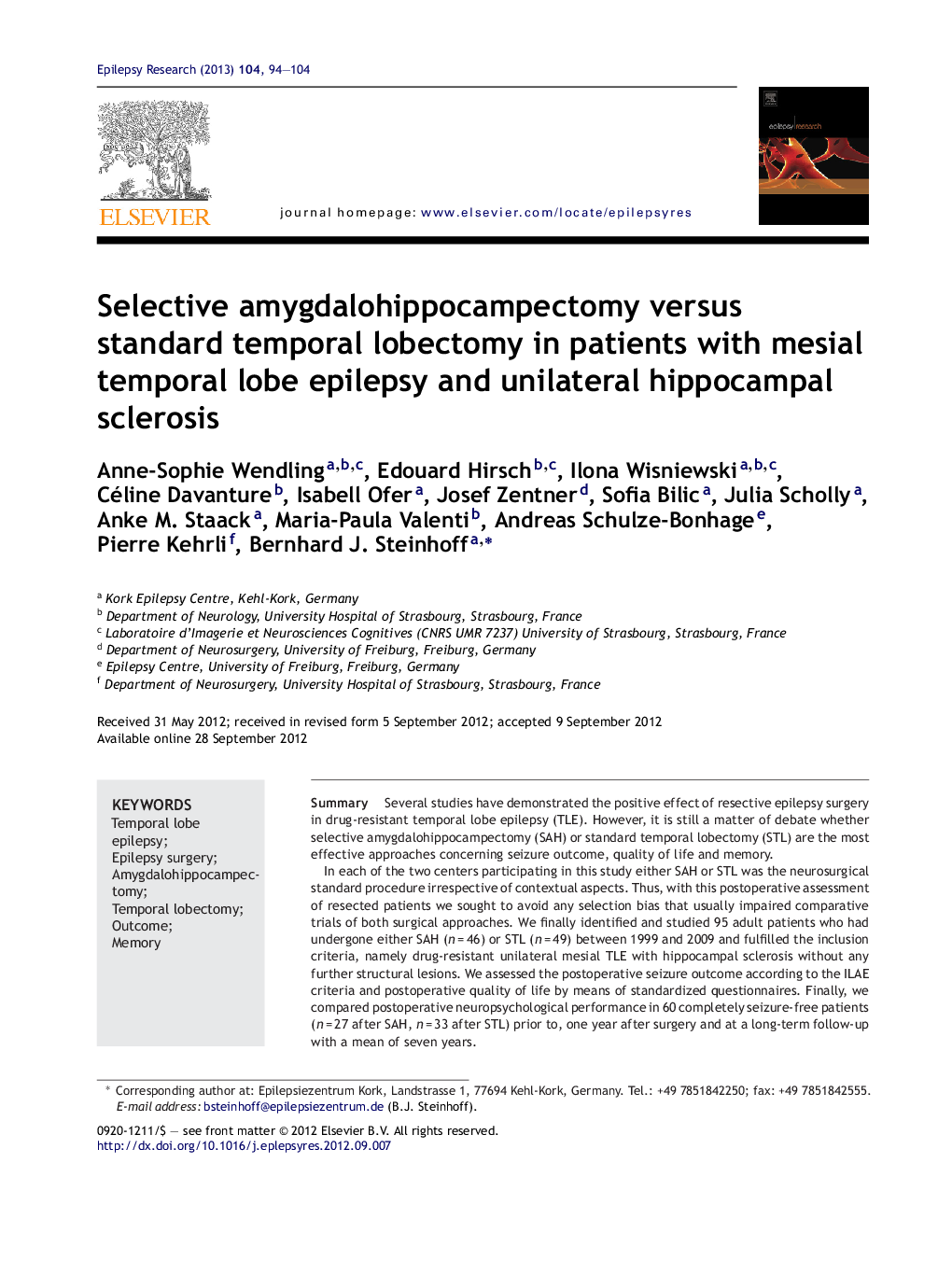| Article ID | Journal | Published Year | Pages | File Type |
|---|---|---|---|---|
| 3052083 | Epilepsy Research | 2013 | 11 Pages |
SummarySeveral studies have demonstrated the positive effect of resective epilepsy surgery in drug-resistant temporal lobe epilepsy (TLE). However, it is still a matter of debate whether selective amygdalohippocampectomy (SAH) or standard temporal lobectomy (STL) are the most effective approaches concerning seizure outcome, quality of life and memory.In each of the two centers participating in this study either SAH or STL was the neurosurgical standard procedure irrespective of contextual aspects. Thus, with this postoperative assessment of resected patients we sought to avoid any selection bias that usually impaired comparative trials of both surgical approaches. We finally identified and studied 95 adult patients who had undergone either SAH (n = 46) or STL (n = 49) between 1999 and 2009 and fulfilled the inclusion criteria, namely drug-resistant unilateral mesial TLE with hippocampal sclerosis without any further structural lesions. We assessed the postoperative seizure outcome according to the ILAE criteria and postoperative quality of life by means of standardized questionnaires. Finally, we compared postoperative neuropsychological performance in 60 completely seizure-free patients (n = 27 after SAH, n = 33 after STL) prior to, one year after surgery and at a long-term follow-up with a mean of seven years.78.2% of SAH and 85.7% of STL were seizure-free at the last observation. Quality of life had improved in 95.6% of the SAH patients and 89.8% of the STL patients. These differences were not statistically significant. Left-sided TLE patients had a significantly worse verbal memory outcome irrespective of the surgical method. However, SAH patients had a significantly better outcome concerning visual encoding, verbal and visual short-term memory and visual working memory.In this study, seizure outcome and quality of life did not differ depending on the surgical approach. However, a more selective resection led to better neuropsychological performances.
